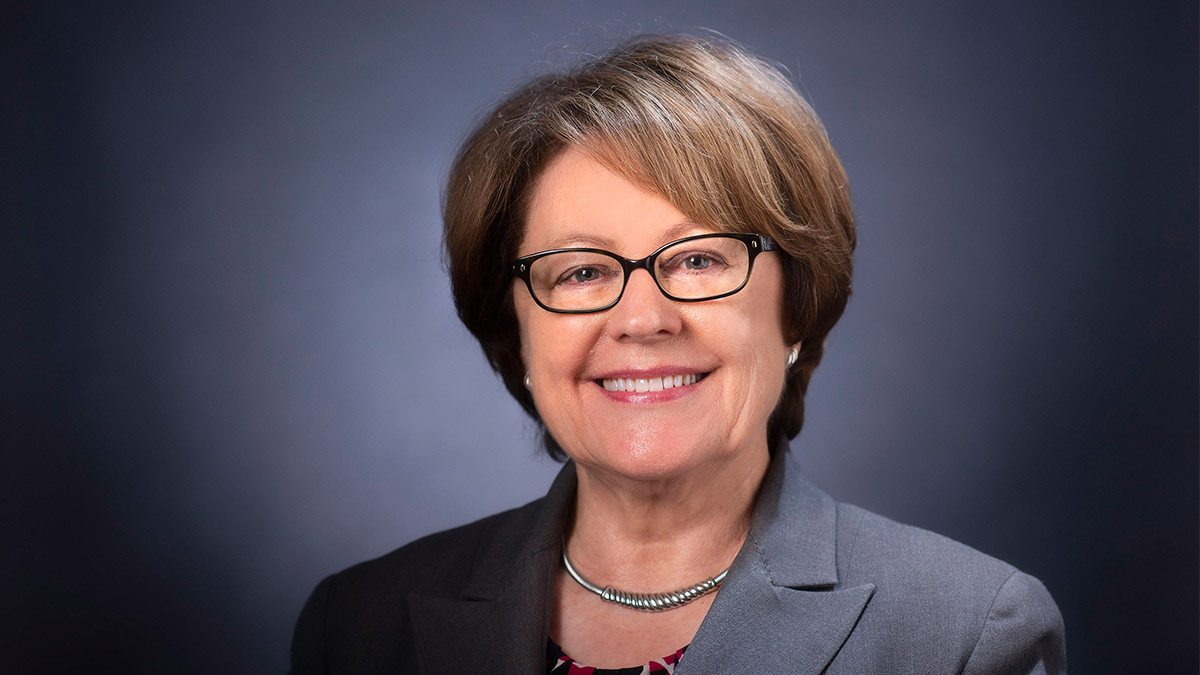VC Judith Cone retiring in April
She created Innovate Carolina, a pan-university environment where innovators could thrive and develop new ideas to solve the most pressing problems in North Carolina and around the world.

After 11 years of dedicated service and commitment to the University and the state, Judith Cone, vice chancellor for innovation, entrepreneurship and economic development, will retire in April.
“Judith has built a talented team, and they will continue to advance the initiatives and programs that she inspired at Carolina,” Chancellor Kevin M. Guskiewicz and Provost Robert A. Blouin wrote in an email to campus. “With the strong foundation that she has established, innovation and entrepreneurship will remain a top strategic priority for our University.”
Cone told the chancellor last year of her plans to retire in spring 2021. Upon Cone’s departure, Associate Vice Chancellor Michelle Bolas will take on additional duties in innovation, entrepreneurship and economic development to provide continuity of leadership to this vital work. A plan for naming Cone’s successor will be announced soon.
“Judith has distinguished herself as an invaluable leader, continuously seeking to strengthen an intentional culture of innovation and entrepreneurship on campus and in our communities,” the message said. “She created Innovate Carolina, a pan-university environment where innovators thrive by developing new ideas to solve the most pressing problems in North Carolina and around the world.”
Cone was recruited to Carolina in 2009 as special assistant to the chancellor for innovation and entrepreneurship. She also served as interim director of the Kenan Institute of Private Enterprise at Kenan-Flagler Business School from late 2013 through early 2015, in addition to her other duties.
Her leadership resulted in the first comprehensive innovation roadmap for Carolina, crafted jointly with the UNC Board of Trustees, senior leaders, alumni, faculty, staff, students and community members. This roadmap set the stage for the adoption of innovation as a key pillar in the University’s strategic framework, The Blueprint for Next, and now its strategic plan, Carolina Next: Innovations for Public Good.
One of the goals in the innovation roadmap was to have a strong consistent, yet decentralized, approach to this work on campus. The Innovate Carolina Network meets regularly throughout the year and has more than 300 people who work together toward greater positive impact in North Carolina and globally.
In 2015, Cone was named the University’s first vice chancellor for innovation, entrepreneurship and economic development, to bring together several key initiatives, including technology transfer, in a dedicated unit. The new unit included the Office of Technology Commercialization, which Cone has successfully led and bolstered as it works with University inventors to translate research discoveries into commercial products and services that improve lives, strengthen the economy and generate revenue for the University.
When the new office was formed, KickStart Venture Services, originally housed in NC TraCS, joined the unit and expanded. It guides and educates faculty as they navigate the complex world of commercializing intellectual property resulting from their research and licensed by UNC to their startups. Since 2009, KickStart has helped 94 faculty-startups and awarded $2.5 million in grants to help faculty members further develop the IP. This investment was leveraged into $72.9 million in federal Small Business Innovation Research and Small Business Tech Transfer awards for a total raised of $862 million, mostly used for salaries.
Working with the Town of Chapel Hill and Orange County, Cone co-founded Launch Chapel Hill, a business accelerator in downtown Chapel Hill. Since 2013, 136 companies have gone through its program and raised $38.2 million. In the most recent fiscal year (2020), those companies provided 1,007 jobs and had revenues of $83.9 million. Cone has been a mentor to student entrepreneurs, and under her team’s management, the student innovation community called 1789 has expanded. 1789 now has 250 student members and, since 2014, the program has supported more than 260 student entrepreneurial teams and ventures, which have raised $22.1 million in funding.
Recognizing an opportunity to strengthen the regional entrepreneurial ecosystem, Cone secured a grant from the New York-based Blackstone Charitable Foundation and formed the Blackstone Entrepreneurs Network. Working with Duke University, North Carolina Central University and NC State University, 15 successful entrepreneurs pooled their knowledge and mentored carefully chosen startups to raise more than $430 million in startup capital.
Building on the relationship with Duke and NC State, Cone founded the Carolina Angel Network in alliance with the other universities, each with its own angel network. CAN’s mission is to support the Carolina entrepreneurial community with an angel investing platform that leverages the power of our alumni network. Since 2016, CAN’s 181 members have invested $12.2 million in 27 UNC-affiliated companies.
Cone represents Carolina on many boards, including an appointment by North Carolina Gov. Roy Cooper to the Board of Science, Technology and Innovation in the Department of Commerce, where she also serves as chair of the board’s Innovation Subcommittee. She also represents Chancellor Guskiewicz on the Research Triangle Foundation Board.
“Judith has been a tireless advocate for innovation at Carolina, a key adviser to the business community and a strategic counselor to boards and other universities seeking to learn from us,” the message said. “She will no doubt continue to champion innovation and entrepreneurship through her service on volunteer boards after she leaves Carolina.”




